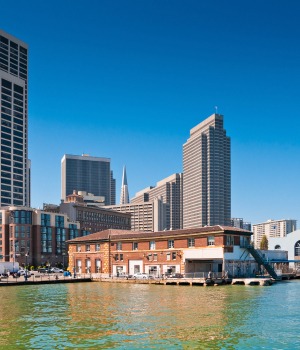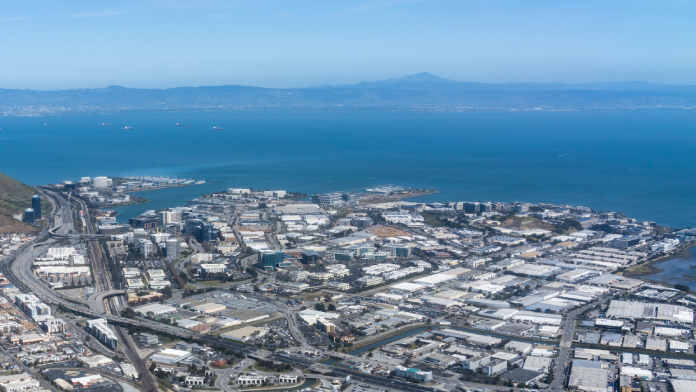Alcohol and Drug Use Statistics in South San Francisco, California
The following statistics show the extent of overdose as well as alcohol and drug abuse in San Francisco County. 1, 2
Less than 1% of residents reported heroin use in the past year between 2016 and 2018.
Nearly 62% of residents reported alcohol use and almost 29% reported binge alcohol use in the past month between 2016 and 2018.
Close to 1% of residents reported methamphetamine use in the past year between 2016 and 2018.
Almost 5% of residents reported cocaine use in the past year between 2016 and 2018.
Levels of Care for Substance Abuse
Multiple levels of care exist for alcohol and drug rehab in California. Some residents require all levels of care during their journey to recovery, while others receive only the less intensive options.
Medical Detox
Detox is the process of safely and comfortably removing drugs or alcohol from your system while in a supervised medical setting. Many people choose a medical detox program to prevent severe withdrawal symptoms. This is often the first step in the recovery process, completed before transitioning into formal inpatient addiction treatment services.
Inpatient Care
An inpatient or residential setting involves living at an accredited rehab facility 24/7 to receive treatment for addiction. A combination of evidence-based interventions are provided, including individual and group therapy, nutritional counseling, and medication administration.
Partial hospitalization programs (PHPs)
PHPs are a type of outpatient treatment in California that often involve many of the same therapies and methods of inpatient care. The difference being that you only visit the drug rehab during scheduled session times, then you can return home.
Intensive Outpatient Programs (IOPs)
A step down from PHPs, IOPs are a type of outpatient treatment in California allowing you to attend onsite sessions for several hours a day, multiple days each week, while spending the rest of your time at home, working, or fulfilling other obligations.
Standard Outpatient
As the least intensive setting, standard outpatient care is appropriate for California residents who are highly motivated and have a strong support system. It involves just one or two hours of treatment per week.
Relapse Prevention
Aftercare, or relapse prevention, provides ongoing support after a rehab program is complete. Aftercare may include 12-step groups, non-12-step groups like SMART Recovery, ongoing therapy, sober living homes, and more.
How to Pay for Substance Abuse Treatment in California
Private Insurance
Every insurance provider in the U.S. is required by law to provide at least some coverage for mental health and substance abuse treatment. In California, residents should contact their insurance provider to confirm specific coverage with their carrier, including applicable copays.
Medi-Cal
Medi-Cal is California’s Medicaid program. Funded by federal and state taxes, this program pays for medical services for children and adults who have limited income. To qualify for Medi-Cal, California residents must meet income requirements and be one of the following: pregnant, responsible for a child under 21 years old, blind, disabled or a disabled family member, or 65 years or older.
California Medicare
California Medicare is a government program providing coverage to residents who are over the age of 65 or who have end-stage renal disease. California residents can use Medicare to cover the cost of rehab and other addiction treatment services; however, not all rehabs accept Medicare insurance.
Sliding Scale Payment Options
Sliding scale payment plans only charge California residents what they can afford, based on their income. To qualify, residents typically need to provide proof of income and assets.
TRICARE in California
California TRICARE (West Region) is a government program that provides health insurance for military personnel, veterans, and their dependents. TRICARE coverage includes addiction treatment services, such as rehab and medication-assisted treatment (MAT).
IHS-Funded Drug Rehabs
Drug rehab programs funded by the Indian Health Service provide free addiction treatment to California Natives and Indigenous peoples in the U.S.
Traveling to and Within South San Francisco, California

The following tips may be valuable when planning a visit to a loved one in rehab in South San Francisco or if you are considering drug or alcohol rehab in the area.
- The Bay Area Rapid Transit (BART) provides subway and bus services within South San Francisco and the Bay Area.
- Subway services from the South San Francisco Station include the north and southbound red and yellow lines. Bus 122, 130, and ECR provide services from this station.
- Airport options for flying to and from South San Francisco include the San Francisco International Airport — 4 miles away, Oakland International Airport — 34 miles away, and Norman Y. Mineta San Jose international Airport — 37 miles away.
- Ferry service between the South Francisco Ferry Terminal and east bay cities, including Alameda and Oakland, is available from the Water Emergency Transportation System.
- South City Shuttle offers free service to stores, libraries, parks, and senior centers within South San Francisco for the public on weekdays.
- South San Francisco has many walkable neighborhoods, including Orange Park, Downtown, and Westborough, where you can run errands on foot.
- Uber, Lyft, and taxis provide convenient and fast transport within South San Francisco and the Bay Area.
- There are numerous hotels and motels for your stay in South San Francisco, including affordable options such as Travelodge by Wyndham, Comfort Inn & Suites, SFO Crashpad, Red Roof Plus, and Embassy Suites South San Francisco.
- Fun places to explore in South San Francisco include the South San Francisco Historical Society, San Bruno Mountain State Park, Café 382, The Wind Harp, San Mateo Japanese Garden, and the San Francisco Bay Trail.
California Alcohol and Drug Laws
California law includes the following policies related to substance abuse:1,2,3,4,5
California Employee Protections for Drug or Alcohol Rehab: California’s labor code requires employers with 25 or more employees to provide accommodation to staff who voluntarily choose to attend alcohol or drug rehab. This may include unpaid time off or use of sick or vacation time. Employees who wish to request time off for addiction treatment may be able to request it under the Family and Medical Leave Act or the California Family Rights Act.
Substance Abuse and Crime Prevention Act: This act provides treatment opportunities for individuals who are convicted of non-violent crimes. Eligible offenders may serve their time in drug treatment rather than in prison.
California Government Prevention and Care Services: Senate Bill 110 expanded these services to include contingency management (an incentivized treatment program) as a benefit covered under Medi-Cal. Patients who demonstrate substance-free behavior, such as drug-free urine tests, are rewarded with vouchers or gift cards.
California Ethical Treatment for Persons with Substance Use Disorder Act: This bill protects residents undergoing addiction treatment by requiring alcohol and drug rehabs in California to adopt a client bill of rights that seeks to ensure every client is treated with dignity, honesty, and respect.
California’s Good Samaritan Law: This law encourages California residents to call 9-1-1 if an overdose is suspected. It protects individuals who seek emergency medical care for overdose from legal repercussions for possession of a controlled substance/drug paraphernalia or providing alcohol to minors.
Resources
- California Overdose Surveillance Dashboard. (n.d.). San Francisco County Dashboard.
- Substance Abuse and Mental Health Services Administration. (n.d.). 2016-2018 NSDUH Substate Region Estimates – Tables.



